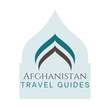Essential Travel Tips for Afghanistan
Discover essential travel tips for Afghanistan in our comprehensive guide. Learn about health and safety, visa requirements, money exchange, and cultural customs to ensure a respectful and enjoyable journey through this incredible destination.
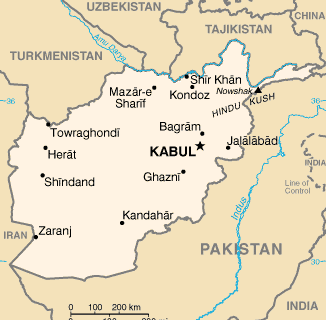

Afghanistan is a country with a rich history, stunning landscapes, and incredibly resilient and hospitable people. In 2024 travellers from all over the world came to Afghanistan to experience its cultures and beauty for themselves. We did, and we loved it so much we felt inspired to write these guides.
However, more than many other travel destinations, Afghanistan requires special preparation. It’s essential to do your research and understand the unique challenges, risks and logistics involved. With the right preparation, a trip to Afghanistan can be an enriching and unforgettable experience.
This blog post will guide you through everything you need to know about travelling to Afghanistan in 2025, covering safety, health, practicalities, and cultural customs.
Here’s your ultimate guide to preparing for a trip to Afghanistan.
Travel Tips for Afghanistan in 2025
Is Afghanistan safe to visit?
This is the first question most people ask when considering whether Afghanistan is a viable destination. The short answer is yes, Afghanistan is generally safe. The longer answer is that acceptable levels of safety and risk vary, and each traveller needs to make their own decision.
It's true that Afghanistan is safer than it has been in decades. The violent crime, petty theft, drug use, kidnappings and corruption that plagued Afghanistan before 2021 are now rare occurrences.
The Islamic Emirate of Afghanistan government has said they welcome tourists, and individual checkpoint guards and government staff are routinely polite and welcoming. In recent years thousands of travellers have visited Afghanistan. Anecdotally, all travellers we've spoken to have said they felt generally safe in Afghanistan, including solo female travellers.
Having said that, it's always important to exercise basic safety precautions and situational awareness when travelling.
Afghanistan Travel Safety Tips:
Personal Responsibility: Travellers should take full responsibility for their safety. Always be aware of your surroundings and trust your instincts.
Street Crime: Street crime is currently rare but still possible. Petty theft, like pickpocketing, does occasionally happen, especially in busy areas and at the Pakistani border crossing points, so always store your cash and passport securely in a money belt or hidden pouch.
Kidnappings and Attacks: Kidnappings and attacks against tourists are much less frequent than in previous years, but they could still occur. It’s important to be vigilant and aware of your personal surroundings. Places that have historically been targets of attacks include crowded areas, tourist and Shia sites and foreign-owned businesses. Taking precautions like not following the same route every day, not sharing your location on social media in real time, and not telling strangers personal information, like where you’re staying or going can reduce risks.
Check with Locals: Locals in Afghanistan, especially those who see travellers regularly such as hotel staff, usually have a good handle on how safe an area is, and whether there is a reason to reconsider travel. Generally you won’t get permission to travel to a province if the government considers it unsafe but the security situation can change on short notice, so ask around if you’re not sure.
Embassy Contacts: Before travelling, make sure you know how to contact your nearest embassy in case of an emergency. Many Western embassies closed down in 2021 and have no representative in Afghanistan. Find out how to contact your embassy in case you lose your passport or need consular assistance.
While Afghanistan is much safer now than in the past, and many travellers have said they felt safe in Afghanistan, deciding whether you consider it 'safe enough' is a personal decision.
Your own government and most people you know are unlikely to recommend travelling to Afghanistan. But then your own government and most people you know haven't been there or experienced it for themselves. If you're still undecided we recommend searching out blog posts and stories from those who've been there and seen it for themselves in recent years.
For more on safety see our post:
Can I visit Afghanistan as a tourist in 2025?
Our Afghan Compass travel preparation guide includes detailed info on safety and how to prepare for a trip to Afghanistan, including checklists to make sure you're as prepared as possible.
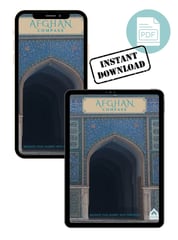

How to Travel Afghanistan
There are a few important practical considerations to arrange before you arrive in Afghanistan. Knowing the process will help you avoid unnecessary stress.
Visa:
You will need a visa to enter Afghanistan, which you can get at an Afghan embassy. Processing times and fees vary considerably. Popular locations to get a visa include the Afghan Embassy in Peshawar, Pakistan, and Dubai, UAE. For more information, check out our post on How to get a Visa to visit Afghanistan.
The only place you can get a Visa on Arrival is at the Shir Khan Border (between Afghanistan and Tajikistan). However, if you're a solo woman travelling through the Shir Khan Border, be aware that solo female travellers have been refused entry in the past. It’s best to arrange a guide to meet you at the border to avoid this issue, or go to the Uzbekistan/Afghanistan border at Termez instead.
Travel Permits:
Once in Afghanistan, you will need to get travel permits, even if you're not planning on travelling outside major cities. These permits are required for security reasons and should be carried with you at all times. You can get these at the Ministry of Information and Culture.
Check In: Once you have the Permit to travel you’re also supposed to check in at the Ministry of Information and Culture in each province you visit. In some provinces you’ll need to do this to get permission to visit the historical sites in the city. This is the case in Kandahar, Herat and Mazar-i-Sharif among others.
Checkpoints: Be prepared for multiple checkpoints and Taliban guards, both within and between cities. This is not a cause for concern, but you will need to show your passport and permits when requested. Taliban guards can also stop you on the street and ask for your permits and identification.
Our Afghan Compass ebook covers everything you need to know about getting Visas, permits and other practicalities.
Money:
Currency Exchange: Money exchange is easy. Withdrawing from ATMs is difficult and expensive. Make sure to bring new banknotes, as old or torn notes will be exchanged at a lower rate. ATMs are available in major cities, but they charge fees of 4-7%, and most ATMs will not accept international cards. It’s recommended to carry a mix of cash (in USD or Afghan Afghani) and a backup card in case of ATM issues. You can also send yourself money using Western Union, RIA or other money remittance services.
For more info on currency exchange and how much a trip to Afghanistan Costs', see our post on Afghanistan Travel Expenses
Staying Connected:
Local SIMs: Local SIMs are cheap and easy to get but you will need your passport and visa to register it. Data is relatively expensive, but you can buy small amounts at a time.
WIFI and VPNs: Most midrange and some budget hotels offer wifi. However in some it's so slow as to be useless, and in others it will only work when the electricity is on. If you'll be using Wifi in Afghanistan we strongly recommend using a VPN to keep your data and connections secure.
Electricity: Afghanistan uses C and F style plugs and adaptors are easy to find. The electricity supply is often inadequate and daily outages of 5-10 hours are expected. We recommend bringing a powerbank and a torch.
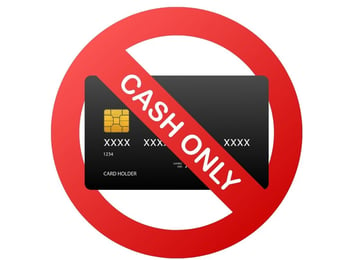

Practicalities: Visas, Money, Travel Documents, and Staying Connected
Culture and Social Customs in Afghanistan
Afghanistan is a deeply conservative Muslim country with strong cultural and social norms. The cities are slightly less conservative than more rural areas. Respecting Afghan culture and customs is key to ensuring a smooth and respectful experience while travelling anywhere in Afghanistan.
Customs that might be interpreted as disrespectful to women, like not making eye contact or directing conversation to male companions, is a reflection of Islamic norms, and not intended to be disrespectful.
Dress Code:
Modesty: Both men and women should dress modestly, covering their arms and legs. For men, this means wearing long pants and shirts with sleeves. If travelling outside of the city you might want to grow a beard. For women, this means a long loose clothing and a headscarf or hijab.
Local Clothing: We recommend wearing local Afghan clothing. This helps you to blend in and show respect for the culture. Afghan men typically wear a perahan tunban (a long shirt and trousers), while women wear an abaya and headscarf, niqab or burqa. For travellers an abaya and headscarf is sufficient in most areas. In more conservative areas you might feel more comfortable also wearing a face mask, niqab or burqa.
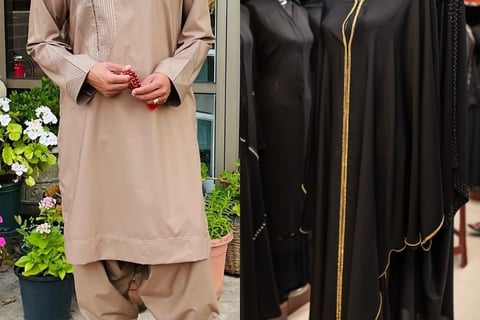

Afghan Dress Code: We recommend you go local
Social Etiquette:
Sex Segregation: In Afghanistan, men and women who are not related do not usually socialise. Social gatherings are segregated. As a man, you should not attempt to speak with women who have not been introduced to you. As a woman, men will speak to you, but won't usually socialise or make small talk. Public transportation is also gender-segregated, so unrelated men and women do not sit next to each other. You might be asked to move to facilitate this.
Touching and Eye Contact: Avoid making eye contact or touching members of the opposite sex, if you are not related. Public displays of affection are highly inappropriate.
Use your Right Hand for Everything: In Afghan (and Islamic) culture, the right hand is used for eating, shaking hands, and passing things. The left hand is reserved for personal hygiene and should not be used in social settings. It’s especially rude to eat with your left hand from a shared plate.
Take off your shoes: When entering a home, religious building, eating platform in a restaurant, even some shops and offices, you should remove your shoes. You can usually tell when to remove them from the collection of shoes in the doorway.
Tea, food and hospitality: Afghans value hospitality, and will often invite you to share tea, a meal or even stay in their homes. You're free to refuse the invitation, and in some cases you should, so as not to burden people. In general, if you're a man you'll drink tea/eat with the men of the family, and the women with the women. It's polite to bring a small gift if you're invited to someone's home. The gift should be set down, not presented to the host.
Respect for Religion and Culture: Do not criticise Afghanistan’s culture, its people, or Islam. These are sensitive topics, and negative remarks can cause offence. Always show respect for Afghan traditions and practices, even if you don’t fully understand or agree with them.
Health Considerations for Travellers to Afghanistan
Health is always a concern when travelling, no one enjoys being ill in a hotel room. The two most common health issues travellers encounter are respiratory problems (due to dust and air pollution) and gastro-intestinal illnesses (from contaminated food and water).
Health Tips:
Respiratory Health: Afghanistan's major cities, such as Kabul, suffer from poor air quality, particularly during the winter months. Herat and western Afghanistan has frequent sand storms during summer and the Wind of 120 Days. Air pollution can lead to respiratory problems, so it’s a good idea to wear a mask, especially if you have pre-existing respiratory conditions.
Gastrointestinal Health: Water and foodborne illnesses are common in Afghanistan due to contaminated water and food. Always drink bottled water, and avoid tap water. If you’re planning to travel in rural areas, bring a portable water purifier. We like the GRAYL bottles but there are plenty of other options.
Medication: Bring all the medications you may need, including any required prescriptions and preventative medicine like gastro medications. You may not always be able to find the medications you need in Afghanistan, and not all the medication available is genuine.
Medical Care: Major cities have English-speaking doctors and decent medical facilities, but rural areas have very limited health services.
Food and Hygiene: Not all street food or restaurants follow basic hygiene practices. Use your discretion and always wash your hands before eating.
Being prepared and using your own best judgement when choosing what to eat can mitigate many of the possible health complications of travelling in Afghanistan.


Afghanistan Travel Guides
Afghanistan is an amazing country, but it's not average. Having a travel guide can make all the difference. A local guide or a well-researched travel guide book can make or break your experience. Here's why:
Safety & Security – A guide provides up to date info on safety and security. Our Afghan Compass ebook offers safety tips and practical strategies for minimising risk, and all our guide books come with Quick Tip summaries and checklists that cover health and safety.
Cultural Sensitivity – Avoid misunderstandings by learning proper cultural etiquette. All our guides include Quick Tip summaries of cultural dos and don’ts.
Language Assistance – Dari and Pashto are widely spoken; English not so much. A guide eases communication and opens doors to understanding. My ebook includes Dari essentials, place names in local languages and resources for learning Dari and Pashto.
Hidden Gems – Discover lesser-known sites. Tour guides (and our interactive PDF guide books with location links) know where to find the best spots.
Logistics Support – Know where to go to get the overnight bus to Mazar, or a share taxi to Bamiyan. Our PDF travel guides detail the transport and accommodation options.
Supporting Locals – Hiring guides and supporting local businesses supports Afghanistan’s economy.
Get your Afghanistan Travel Guide Book
To navigate Afghanistan with confidence, grab our PDF guidebook, Afghan Compass. Travel smart and explore with confidence!


Your Journey to Afghanistan Awaits
Afghanistan offers a unique and eye-opening travel experience, but it’s essential to be prepared before you set off. Being prepared means saving you money and time, allowing you to understand and connect with locals, and getting to see the best of the country. Whether you’re wandering through ancient cities, hiking in the breathtaking mountains, or sipping tea with locals, Afghanistan is an adventure like no other.
Remember, the key to a fulfilling trip to Afghanistan is preparation— do your research, respect local traditions, and approach your journey with an open mind.
